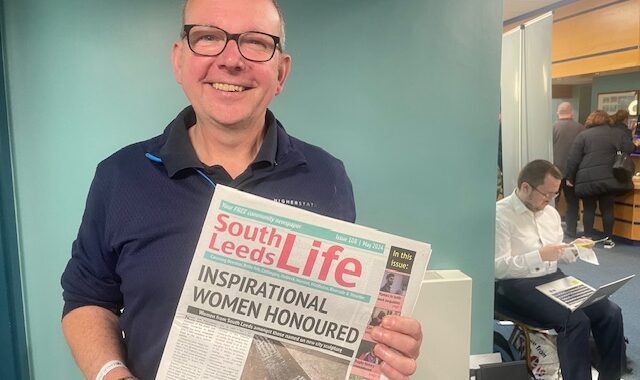
Last week (April 12) West Leeds Dispatch took its first steps towards becoming a social enterprise.
The hyperlocal community news publication, which was set up nearly two years ago, announced the move on its website saying: “A board was formed under the name ‘West Leeds Community Media’ to manage and develop the Dispatch and to identify the aims and ambitions of the company.”
The decision to become a social enterprise came after editor John Baron surveyed his readers late last year in an attempt to avoid the inevitable burnout that is the number one cause of commercial failures in the hyperlocal sector.
John said: “The time is right to take [the Dispatch] to the next level.
“By having a strong board of local residents with diverse skills we’re hoping to build capacity to make the Dispatch more sustainable and put it on a stronger footing, all of which is good news for readers.
“The Dispatch will be all the stronger in the long run.
“Becoming a social enterprise doesn’t change us one bit, we’re here to give local residents a voice and we welcome contributions from anyone and everyone on anything connected with life in West Leeds.”
It was never John’s intention that the Dispatch would be run solely by himself and a handful of volunteers. The objective was always to become something much bigger.
“Now we have a board of eight people, all local, and each bringing individual skill sets and levels of experience in different areas of expertise to the table.
“We have people with a background in journalism, commercial and fundraising’; company treasurers, community developers and secretaries; people who represent different elements of the community.
“Everyone who has come on board has a specific role in helping take the Dispatch to the next level.”

A social enterprise is a business that has social, charitable or community-based objectives.
It’s the second shrewd move John has made recently. First, the Dispatch became a member of the government-backed press regulator Impress.
Now, as a registered company limited by guarantee, John will no longer be individually vulnerable in potential legal proceedings as a limited company is legally separate from the people who run it.
John says: “If someone sues the Dispatch it’s no longer my house that will be at the centre of a protracted libel battle.
“Ultimately, my goal is to make the Dispatch a not-for-loss making publication.
“There is a belief that journalism exists as a free service. But there is a cost involved even in community journalism, whether that be hosting, website plug-ins, the cost of sending out monthly e-mail newsletters, etc.
“If we can start to cover these costs, that will be a good start.”
Rebecca Whittington, former head of news at the Yorkshire Post and Yorkshire Evening Post, now working in the Journalism Department at Leeds Trinity University, and a member of the board, wrote on her website:
“The Dispatch has already made its mark both digitally and, as a one-off, in print since its launch, with a healthy contributor base and a growing number of online users, so it’s really exciting to be involved in the future development and growth of the Dispatch.
“I have a strong belief that the appetite for local news has not diminished in recent years, but the methods of accessing and the definition of news itself have changed dramatically.
“While titles like my former haunt the Yorkshire Evening Post continue to provide a vital service in the city, there simply isn’t capacity for them alone to cover the grassroots, hyper-local issues and interests of everyone in Leeds.
“Holding to account, sharing information, giving a voice to disparate groups and celebrating successes is still important and hyper-local sites fill the gap that traditional news providers are struggling to meet.”




